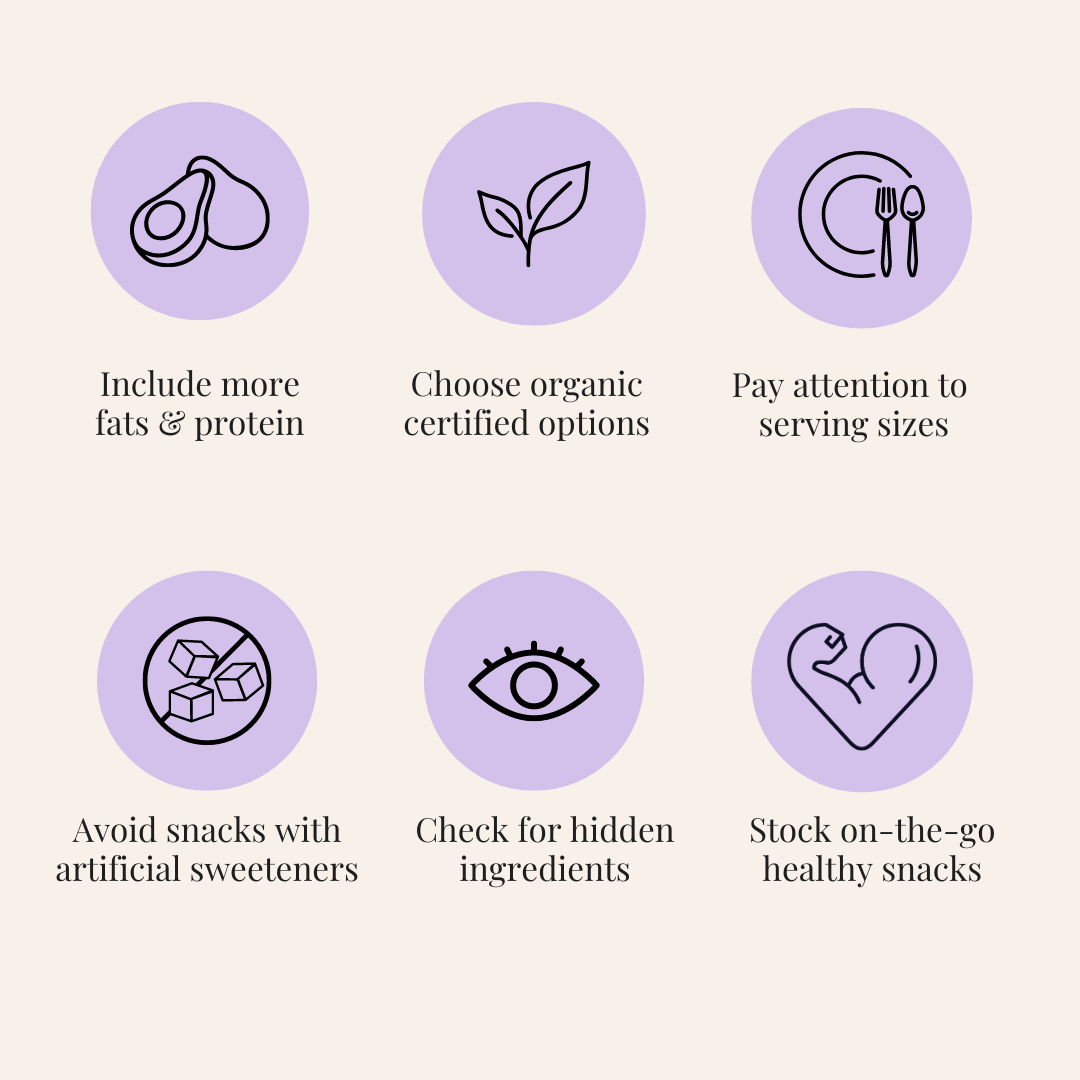As much as we love snacks and snacking, we have to say it must be done right, the smart way. There are different levels of snacking and if it’s not the correct one, it can make it harder for your body to have stable blood sugar levels. Today we’re gonna tackle snacking and explain how to snack properly and how to focus on the time frame between each snack and choosing quality snacks for better health.
What is snacking?
In case you’re not familiar with the term snacking or snacks, let us explain. Snacking is when you consume food or beverages between your main meals. Most of the snack foods you can find on the market are highly processed, high-calorie, and high in carbohydrate foods. However, snacking just means to eat or drink something in between meals, regardless of whether the food is healthy or not.
There are different things that encourage snacking, hunger being one of them. But also factors like social environment, anxiety, location, time of day, and food availability are responsible for snacking. Actually, plenty of times people will eat if they see food despite not being hungry.
How does snacking affect blood sugar?
Despite the popular belief that it is necessary to eat frequently to maintain stable blood sugar levels through the day, snacking and eating pretty often between meals can actually lead to unstable blood sugar levels when not eating the right foods. So yes, eating between meals can have a huge impact on blood sugar levels, especially for individuals with diabetes or those who have difficulty regulating their blood sugar. Here's how snacking can affect blood sugar levels:
- Timing. Snacking between meals or before bedtime may lead to higher blood sugar levels, especially if the snack is high in carbohydrates. It's generally recommended to snack smart and space out snacks, choosing options that provide sustained energy rather than quick sugar rushes.
- Carbohydrate content. Most snacks contain carbohydrates or hidden sugars, which are broken down into glucose during digestion. Glucose is the primary source of energy our body uses, and it can raise blood sugar levels as it will tap into that first. Snacks high in carbohydrates, particularly refined carbs like sugary snacks or white bread, can cause a rapid increase in blood sugar levels. Which we don’t want.
- Portion size. The portion size of the snack also matters. Larger portions will likely contain more carbohydrates, leading to a higher increase in blood sugar levels. It's important to be mindful of portion sizes and choose snacks that align with your dietary needs and goals. That’s why we always recommend eating a whole bar of Funky Fat Choc, it will keep you satisfied for hours and won’t affect your blood sugar leves (yes, an entire bar).
- Snack composition. Including protein and healthy fats in your snacks can help slow down the absorption of glucose into the bloodstream, thereby preventing sharp spikes in blood sugar levels. These nutrients can also promote satiety and help you feel full for a longer periods, which can be beneficial for managing blood sugar levels.
- Glycemic index. The glycemic index (GI) is a scale that ranks carbohydrates based on how quickly they raise blood sugar levels. Snacks with a high GI, such as sugary snacks or processed foods, can cause a more rapid and significant increase in blood sugar levels compared to snacks with a low G. Fun fact: our chocolates have a 0GI.

How often should I snack?
This question might be the key to snacking, since there are people who snack every two hours and, as you can imagine, this is not that healthy. Let us explain why.
When you eat, your body begins the process of digestion, which requires spending a lot of time and energy on breaking down food into molecules that can be absorbed and utilized. Complete digestion usually takes 6 hours, if not more, depending on the person. When you snack too often (let’s say every 2 hours) and you eat in between meals, you’re confusing your body because you’re asking it to restart the whole digestion process when it’s not even finished yet since the last time you ate. Of course, re-starting this process has consequences, such as feeling more tired (due to the extra amount of energy to restart again), heavier digestion, and also weight gain. If your body can’t absorb and utilize food, it will store it as fat. Plus, restarting the whole process of digestion by snacking will cut short your body’s ability to burn fat in between meals.
We’ve mentioned earlier that there are different levels of snacking: eating small yet intentional meals every 2 hours or having 2 larger meals a day and 1 snack. As you can imagine, the first option tends to be considered the unhealthy one because of all of the factors we’ve already mentioned. Now, the interesting part is the second level of snacking. If you’re fasting and only have two meals per day and these meals are separated by a 6-plus hour window, snacking looks very different. If you have two large balanced meals a day and one snack, you’ll reduce body weight, improve your glucose insulin sensitivity, and reduce hepatic fat content and fasting plasma glucose. Also, you’ll have stabilized blood sugar levels because you’ll be giving your body the time it needs to properly digest each meal.
Snack smart, here’s how
Also, besides giving your body time to digest, the snack that you choose is very important. If you go for a highly-processed, high-carb high-sugar snack you'll be throwing away all the effort. The quality of the snacks is as important as the timing of them, so snack smart:

It doesn’t matter if you prefer sweet or savory snacks, as long as you go for a healthy one.
What you want for a snack is to be healthy, packed with nutrients that will nourish your body and will satiate your hunger without affecting your blood sugar levels. Some snack ideas can be Funky Fat Chocolates or Nuts & seeds. If you need more healthy snack inspiration, in our recipes page we have plenty of healthy, delicious, and nourishing ideas for you to try.





Leave a comment
All comments are moderated before being published.
This site is protected by hCaptcha and the hCaptcha Privacy Policy and Terms of Service apply.